Thursday Feb 26, 2026
Thursday Feb 26, 2026
Saturday, 27 July 2024 00:01 - - {{hitsCtrl.values.hits}}
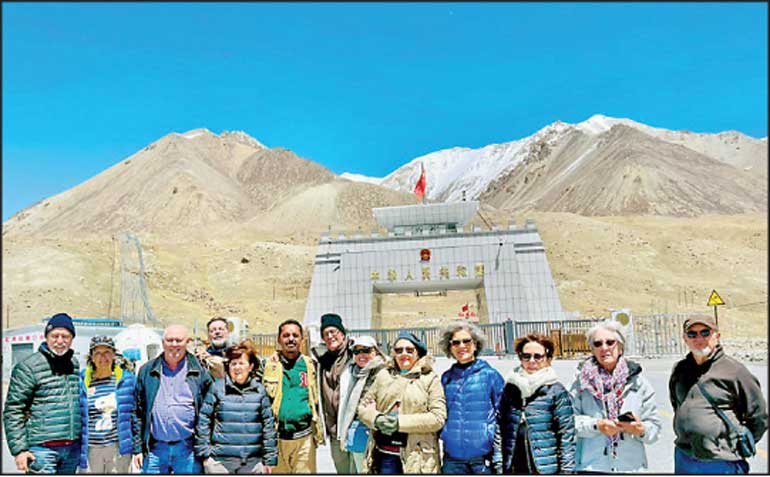
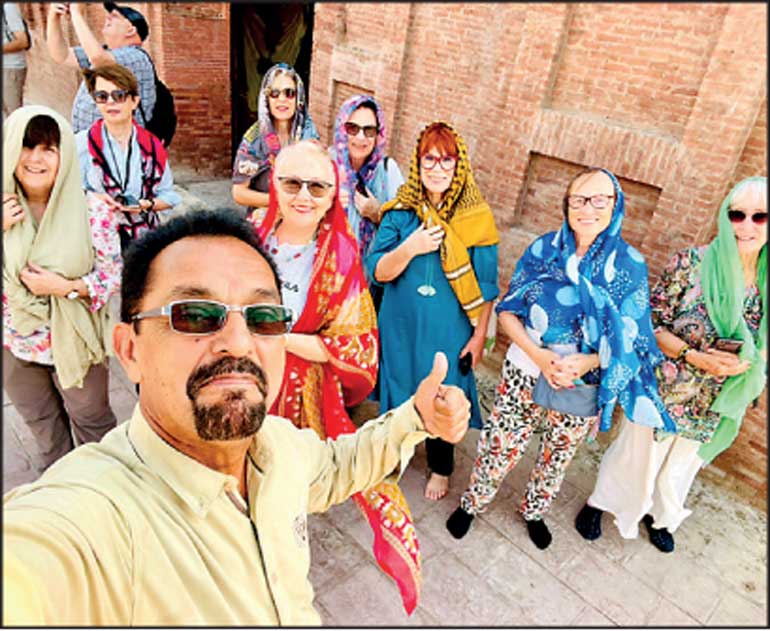
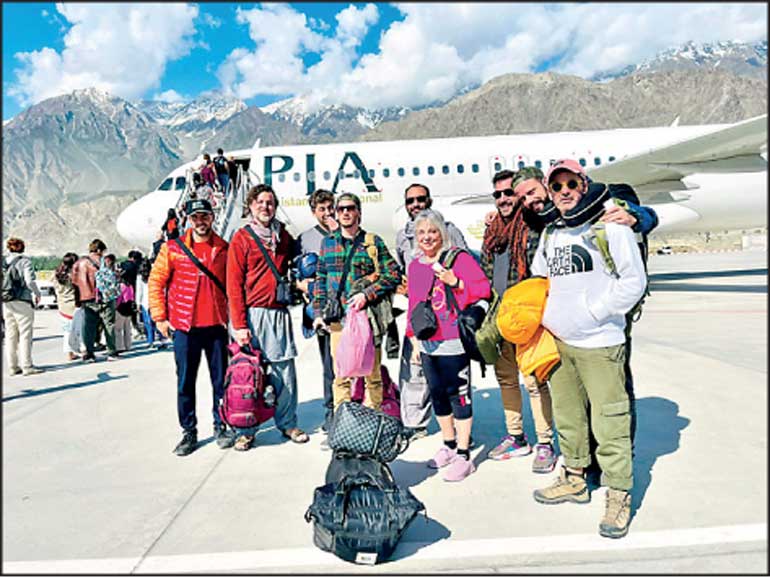
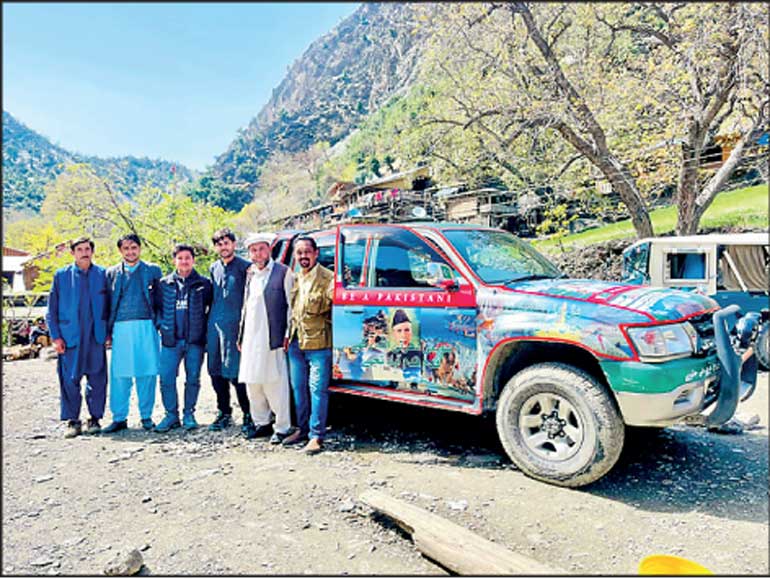
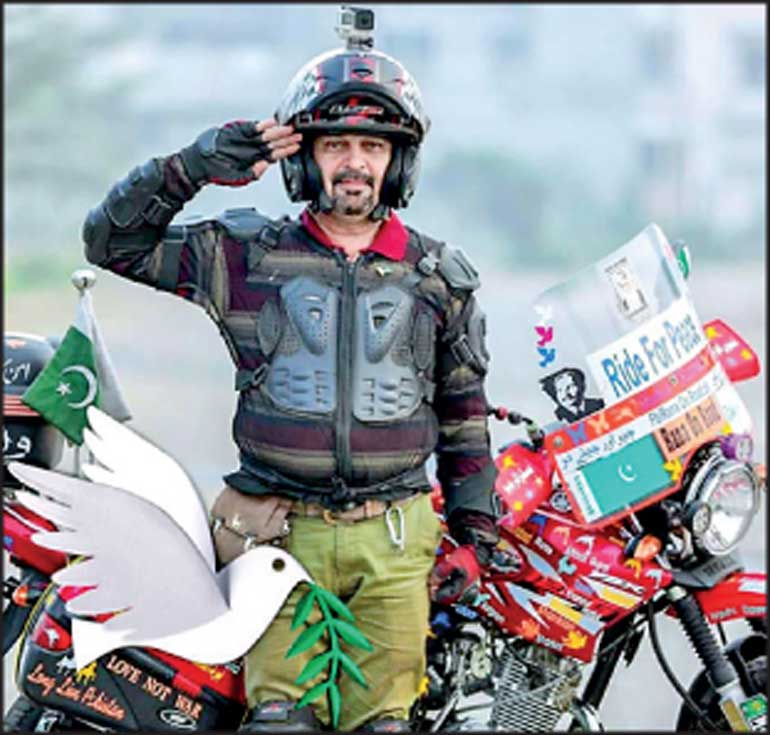

The Argentina tourist group pose before playing a Pakistan-Argentina friendship football match in Islamabad organised by the destination management company Last Tribe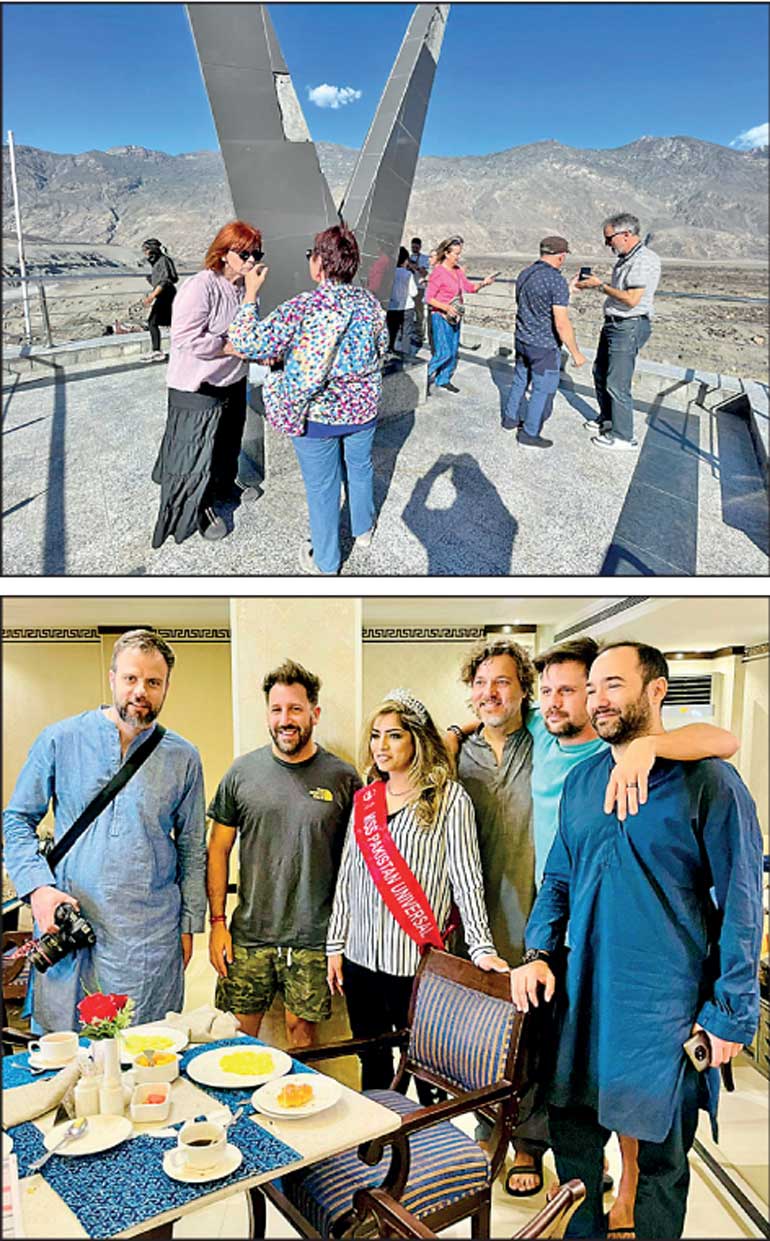
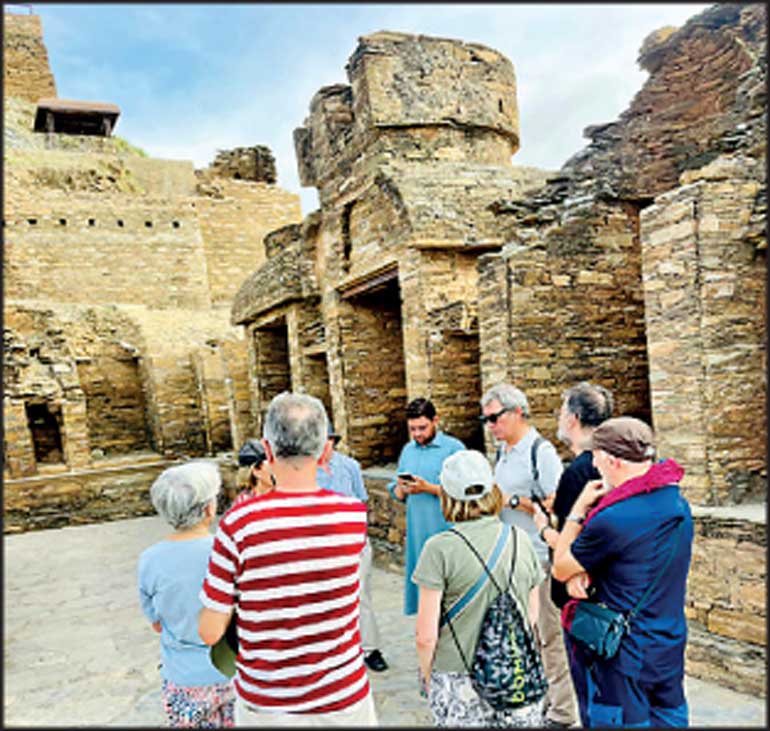
A Spanish tourist group in May 2024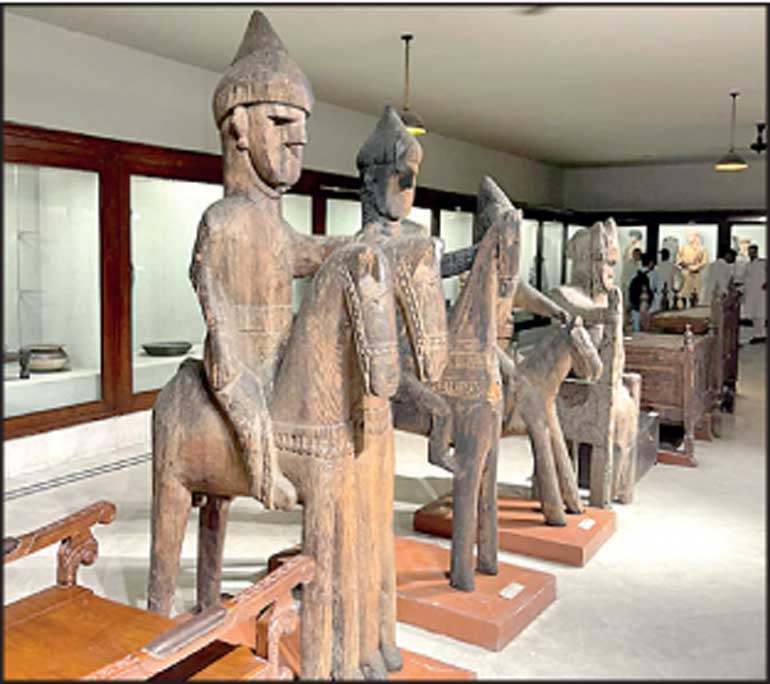
Artifacts from Kalasha tribes in the Chitral region
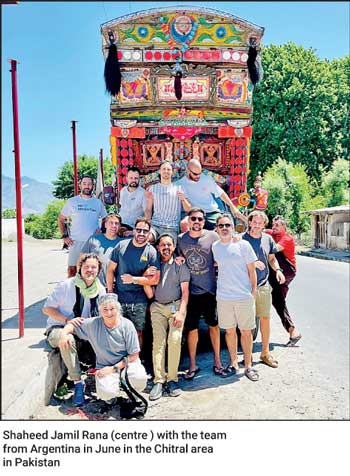 By Surya Vishwa
By Surya Vishwa
How does prejudice creep into our world view disturbing our tranquillity and that of the world? Often it is through the route of darkness marked by the mileposts of ignorance such as fear, suspicion, envy, and stereotyping. If we think such and such a person or community is below us or above us in aspects of economic wellbeing, education or righteousness/religious superiority/inferiority or any race based ranking this modern world witnesses through diverse history attributed sequences then the richness of a calm state of being cannot be earned by us.
How do we go towards such an achievement? How do we navigate across the storms of bias and the boulders of rigid thinking?
One sure prescription is to open the route to humanity by travelling across the borders of propaganda and non-exposure because how can we understand our earth neighbours if we do not visit them, talk to them and live for a moment in their shoes.
Powerful tool of modern day peacebuilding
This brings us to a fact that often alludes us; that one of the powerful tools of modern day peacebuilding is tourism. Tourism is lost often in the oasis of industry mistaking high rise concrete luxury to be the hallmark of what makes global travelling successful, missing out on the human connection where a humanistic experience of one traveller can break all pre-conceived notions about persons, communities and countries.
We see the keenness of countries across the world to promote their spiritual/religious linked heritage sites but what is underestimated is the promotion of the shrine within each human heart which is an ocean of compassion and understanding if the rocks of fixed views or tarnished interpretations that shield this awareness is removed.
Today we focus on two separate features depicting the potential of humanistic and spiritual tourism as a catalyst for connecting our fragmented world.
Combining tourism with peacebuilding
We first feature an exclusive story from Pakistan of a rare human being who has combined professional tour guiding and the overarching discipline of tourism with his passion for peacebuilding.
His story is so radical that it is almost impossible to grasp the boldness and self-confidence it denotes that separates money earning from the ‘heart-earning’ as the hero in our narrative calls it. In our upcoming editions we will feature a detailed interview with Shahid Jamil Rana of Pakistan but for now we will introduce in brief his story as an example of how peacebuilding, landscape, culture and tradition are merged into a pulsating human tapestry.
How would you essentially describe yourself, we asked Shahid who is best known under the social media tagline ‘Rana on Road,’ and known as a foremost leader of people tourism in Pakistan where he has over the past four decades enabled almost the whole of Europe to see the true Pakistan.
“As a social prime minister of world peace through travel,” he laughs as he prepares to tell us his story and that of his destination management company ‘Last Tribes Pakistan,’
“I have been associated with travelling and the tourism industry for over 40 years. I started my career around 1983 as a freelance travel coordinator with a reputed travel company. Soon I became a professional guide for tourists, handling two large European tours. I had a natural liking for learning different languages and honed by skill in Japanese thoroughly. This took me to Japan. My experiences in the sphere of travel brought me intense humanistic experiences. For example, a lady whose teenaged son had died, came to Pakistan to recover from this loss, saw me and was seriously emotionally affected as I had resembled her son very starkly. I became an adopted son to her and this humane connection took me to England nearly 20 times, with intense pressure from her to my parents to allow me to settle in UK. With my personal choice to continue to live in Pakistan and carve out a niche in bringing the world to open their eyes to the beauty and culture of my country, my life developed in those lines.”
Global spiritual family
As he recalls the ups and downs of life, he skims over the difficult parts and although his usually vibrant face dulls, it is momentary. He narrates as follows;
“I have known how some humans, even those very close to us, can be uncompassionate in bad times. But I learnt not to respond in similar kind. I listened to the voice of compassion within myself and was kind to myself as I was forced to re-start my life from scratch giving up all I owned due to varying personal crisis. But the God I believe in is great and I have been able to amass a wondrous global spiritual family from different parts of the world. I developed a deep interest in learning from them how faith and religion are intensely personal choices that enhance a human being when an open mind is kept. I have learnt in my life that religious scriptures can be used by any human of any religion for living an authentic and genuine life of kindness, empathy and loyalty or that it can be used as a tool for hypocritical whitewashing of an interior of impurity.
“I use tourism as a gift by God to bring love, beauty and peace into human hearts. I have taken great pride in showing the world the great Buddhist heritage of Pakistan through the Ghandhara tours, the survival of ancient traditions through the culture of the communities in the Kalash mountainous areas of Pakistan, the Islamic spiritual tours within the country that can resonate with the world and all its people, the pristine beauty of the Hunza region, especially in the Autumn season, the journeys of life of the Kochi Nomads of Balochistan and experiencing across the closed chapters of time, a glimpse of the Indus saga through and tracking the Alexander route.”
“Exposing the world to the festivals of Chilam Joshi in the month of May, the Uchal festival in August and the Chawmos festival in December and many other festivals and ceremonies across Pakistan, hiking and trekking across some of the countless peaks of my country, sharing with the world the pure natural beauty of the Himalayan ranges from the Pakistan route, the splendid isolation of Gilgit Baltistar and the wild deserts of Baluchistan but above all the beauty of the hearts of the tribal communities of Pakistan as well as all my country’s citizens have been part and parcel of my mission in life.”
Ditch textbook theory of peacebuilding
As one listens to Shahid, especially as he delves into his escapades of the Rana on Road series which has been for over a decade a social media hit, one does feel a twinge of envy. How many of us have the courage to ditch textbook theory of peacebuilding and take the route lesser travelled – such as buying a bike with the last dregs of resources after handing over the rest to one’s family as domestic duty and then leaving the rest to providence? Yet without risking fate in this manner we crave for the freedom of life that those such as Shahid carve for themselves as they take on world missions that few do, and thereby attempt to bring heaven on this very earth rather than create hell here and then hope to fly to heaven in the afterlife.
“Rana on Road was my passion and I did not opt for any sponsorships from the NGO sector – it was a mission of peace as I transformed into a biking nomad and rode through the vicissitudes of Pakistan’s regions, highlighting the message of peace as I provided rides at times to hitch hiking youth of Pakistan and soon finding my soul brother – Joan Riera from Spain, an anthropologist who is today my global business partner. With him and others across the world, who I mostly attracted through my Rana on Road initiative started about 15 years ago I have a team across the world with whom I am now working on the next stage of exclusively conceptualised destination management as a form of educating the world that no matter where we live that we can change our heart for the better through travel as long as we keep it free from the murky intrigue of stagnant bias.”
We met Shahid Jamil Rana in Sri Lanka as he embarked on a travel experience in this country in order to obtain Buddhistic insights to better conceptualise Taxila Buddhist tours keeping in mind Buddhist pilgrims such as those in Sri Lanka and other nations whose spiritual heritage is the wisdom of love and the middle path as taught by the Buddha.
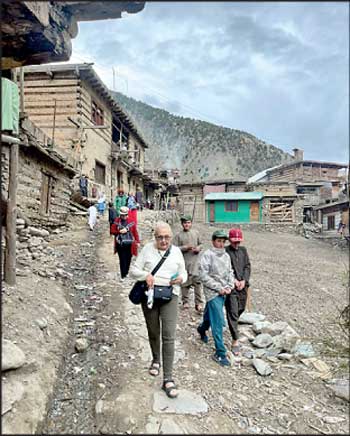 “As part of my tourism experience in Sri Lanka I am due to meet some members of the Buddhist clergy who will guide me to developing the Gandhara tours for Sri Lankan as well as Buddhists in the Asian region,” he explains and expresses sadness that tourism between India and Pakistan is not a practiced reality.
“As part of my tourism experience in Sri Lanka I am due to meet some members of the Buddhist clergy who will guide me to developing the Gandhara tours for Sri Lankan as well as Buddhists in the Asian region,” he explains and expresses sadness that tourism between India and Pakistan is not a practiced reality.
Cultural fusion for creating a happier world
“I am to meet some Sri Lankan friends who are sociologists promoting research on comparative spirituality and through them I may meet some yoga experts in Sri Lanka who are Sri Lankan Tamil as well as Indian. Yoga is a big hit in Pakistan especially as a means of enhancing mind power in the corporate world and I wish to understand better how I can develop better tourism concepts for the global management and business sector and Insha Allah work with human beings irrespective of religious or ethnic barriers on maximising on the potential of cultural fusion for creating a happier world.”
“I am also these days exploring the maximisation of sports for tourism as a sequence to my initiative in arranging a special football match with an Argentinian tour group last month.”
So what are the nations who visit Pakistan more often?
“Well, the whole of Europe. Italians love Pakistan and it is a wonderful experience working with them as it is with the Japanese, the Germans, French, British and especially the Spanish who we work with a lot on arranging tours,” he states.
“Even in the worst case scenarios in challenging times of the past we have had some travel groups sticking with a positive mindset and choosing not to cancel their travel. I consider these tourists the champions of peace and I am proud to say that there has not been a single untoward incident in any of the tours that we have conducted.”
Note: In our upcoming editions we will publish a detailed interview with Shahid Jamil Rana especially on his plans to promote the Buddhistic tours in Pakistan for a Sri Lankan and global traveller audience as well as insights on Pakistan’s Buddhist heritage from the lived in experience of spiritual tours.